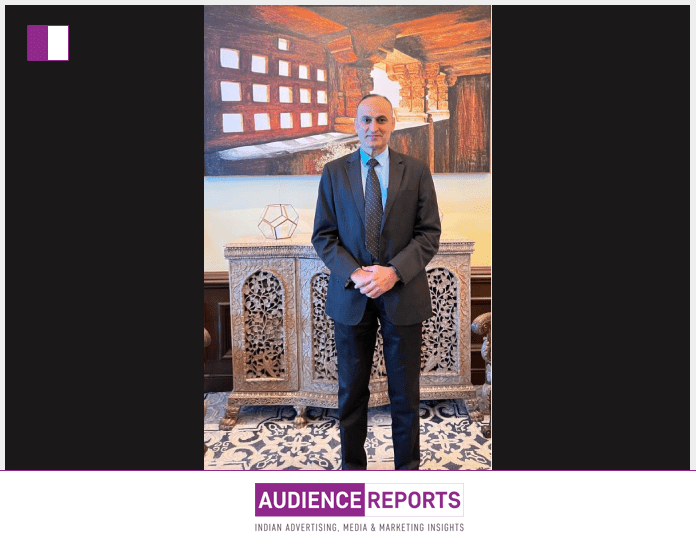Prof. SS Prasada Rao Ph.D, a distinguished academic at SP Mandali’s Prin. L. N. Welingkar Institute of Management Development & Research, offers more than just insights he brings clarity to the chaos of contemporary business transformation. In a recent LinkedIn post, he articulates the concept of the “4Ds” Democratization, Decentralization, Decarbonization, and Deglobalization not as buzzwords, but as the four cardinal forces redrawing the business map globally.
Prof. SS Prasada Rao Ph.D doesn’t merely list these trends; he brings depth to them. He captures how each of these forces acts as both a disruptor and an opportunity, challenging businesses to rethink, reorient, and reimagine their models. The framework of the 4Ds is not just a theoretical construct it’s a lens to understand the pulse of change. As he suggests, those who understand and harness these dynamics will shape the next era of business leadership.
Democratization as Prof. SS Prasada Rao outlines is the great equalizer. In a world where digital platforms now offer the smallest voices a chance to be heard, the concept of centralized influence is dissolving. The rise of fintech, online education, and independent content creation is giving power back to individuals. This shift is more than economic it’s philosophical. Prof. SS Prasada Rao Ph.D points to how businesses that provide access, affordability, and autonomy are gaining a decisive edge. The barriers to entry are crumbling, not due to deregulation, but due to digital empowerment. The implications? Power no longer lies solely in capital but in community.
Decentralization is the second wave in this transformation. Prof. SS Prasada Rao draws attention to how this isn’t just about blockchain or cryptocurrencies it’s about control. From remote work becoming mainstream to peer-to-peer networks disrupting financial systems, decentralization is changing the architecture of organizations. The future, as he indicates, isn’t about scaling vertically but expanding horizontally. Decentralized models are inherently resilient and responsive. Prof. SS Prasada Rao Ph.D highlights how companies embracing distributed workforces and technologies are building systems that are antifragile able to grow stronger in the face of stress.
The third dimension, Decarbonization, speaks not only to the survival of the planet but also the sustainability of business models. Prof. SS Prasada Rao reminds us that decarbonization is no longer optional; it’s imperative. Companies like Tesla and Tata Motors aren’t just building electric vehicles they’re redefining the economics of energy. Similarly, brands investing in renewable energy and green packaging are aligning profitability with responsibility. Prof. SS Prasada Rao Ph.D emphasizes that consumer expectations are shifting. In an age where trust is currency, businesses ignoring environmental responsibility risk irrelevance.
The final shift Deglobalization is perhaps the most complex. As Prof. SS Prasada Rao notes, the global pandemic was not just a health crisis but a geopolitical catalyst. It exposed the fragility of global supply chains and pushed nations to seek local solutions. Movements like ‘Aatmanirbhar Bharat’ are not about isolation but about resilience. Prof. SS Prasada Rao correctly identifies this shift as a rebalancing act where global integration remains, but local agility becomes the priority. For businesses, it’s a call to diversify operations, reduce dependency, and strengthen domestic capabilities.
What makes Prof. SS Prasada Rao’s perspective unique is the way he interweaves these megatrends into a coherent narrative. He doesn’t just present them as individual forces but as interconnected shifts shaping a new economic ecosystem. His insights are grounded in observation, yet they challenge us to be anticipatory. For students, entrepreneurs, and corporate leaders alike, his analysis serves as both a map and a compass.
In using real-world examples Tesla, GitLab, Tata, Paytm Prof. SS Prasada Rao shows that this is not a theoretical exercise. These are live case studies of adaptation and innovation. These companies have internalized the 4Ds and are designing their futures proactively. The message is clear: adaptability is the new advantage.
Prof. SS Prasada Rao’s ability to translate complex change into digestible insights is a mark of an educator who not only teaches but thinks. His post is a reflection of a mindset that values curiosity, clarity, and courage traits essential for navigating turbulent times. He does not romanticize disruption; instead, he urges leaders to become more intentional about how they respond.
As Prof. SS Prasada Rao states, these forces are not temporary trends but defining shifts. The companies that resist them risk stagnation. The ones that embrace them, however, are not only surviving but thriving. And while technology may be the enabler, it is the mindset, as he subtly implies, that determines success.
In a world of noise, Prof. SS Prasada Rao brings signal. His insights on the 4Ds are not just relevant they are urgent. He doesn’t ask businesses to follow trends; he calls them to lead with purpose, grounded in awareness. As organizations strive to make sense of a volatile, uncertain, complex, and ambiguous (VUCA) world, voices like his offer not just direction, but clarity.
Ultimately, Prof. SS Prasada Rao doesn’t just describe the future he helps us prepare for it. And that may be his greatest contribution not just to academia, but to business and society at large.





































